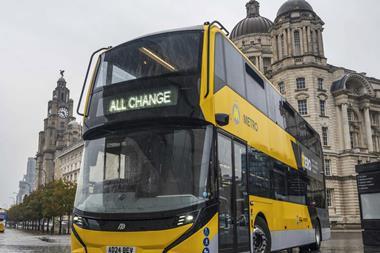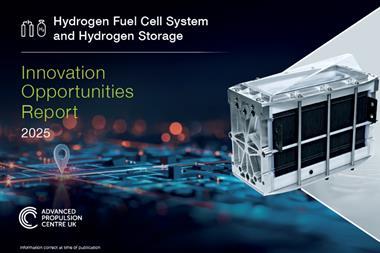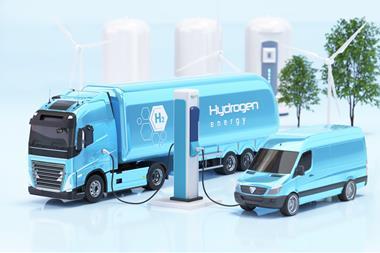
Balfour Beatty is retrofitting part of its heavy vehicle fleet with a hybrid hydrogen system.
Its M77 Hydrogen project is now live with an aim to demonstrate the viability of hydrogen technology for heavy plant and equipment. The project is the result of over two years of collaboration with ULEMCo, Logan Energy and PlusZero Power, supported by both internal funding and £243,000 from the Scottish government. Balfour Beatty’s goal is a 30% reduction in carbon emissions.
It has successfully retrofitted two salt spreader HGVs and one Impact Protection Vehicle (IPV) and has set up green hydrogen supply, onsite storage and refuelling infrastructure, and is now analysing its road test data to identify further improvements. The results so far are said to be promising with spreaders showing around a 26% carbon reduction during road tests, while the IPV is also running with reduced emissions, albeit at a slightly lower rate.
One of the main lessons Balfour Beatty says it has learned is that retrofitting existing vehicles with hydrogen technology is straightforward and effective, providing significant carbon savings. Vehicles can switch to diesel if hydrogen is unavailable, reducing risks associated with hydrogen supply. Minimal changes are needed for vehicle operation; drivers only require familiarisation with the refuelling process.
The main challenge it encountered was the cost of the retrofits and the current limited availability of hydrogen refuellers and hydrogen gas. The hydrogen supply landscape in Scotland is expected to improve from 2026, enhancing accessibility.
The company will now host quarterly ‘lessons learned’ sessions and visits to its M77 depot starting in September.
“We aim to thoroughly test our spreaders throughout the winter maintenance cycle and continue analysing IPV data to optimise fuel displacement,” a spokesperson says. “Additionally, we plan to leverage funding to support our supply chain in transitioning to hydrogen, sharing risk assessments, cost information and management plans to ease the adoption process.
“To ensure the economic sustainability of this transition, we will actively engage with the industry, build new connections and advocate for competitive green hydrogen fuel rates.”
































